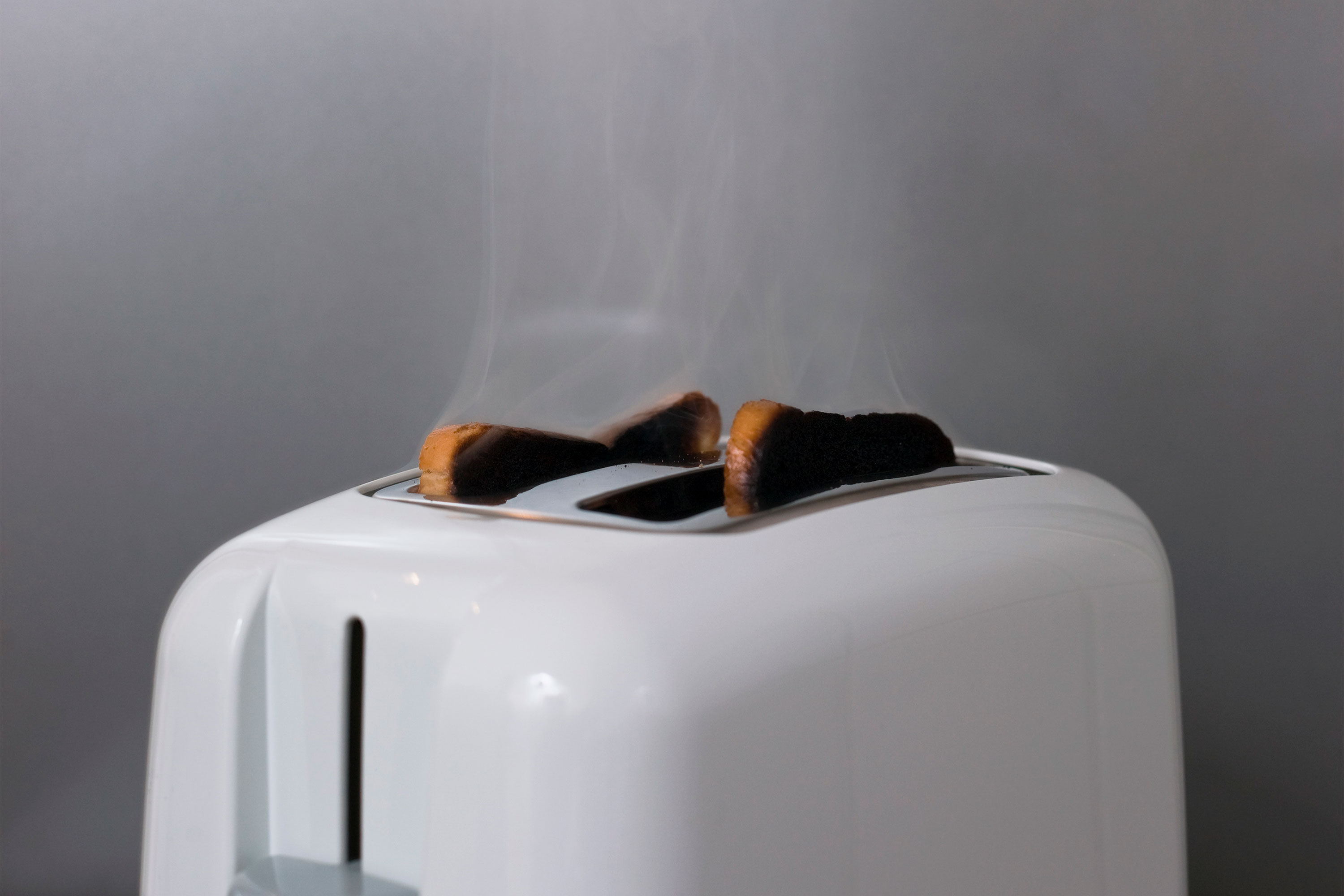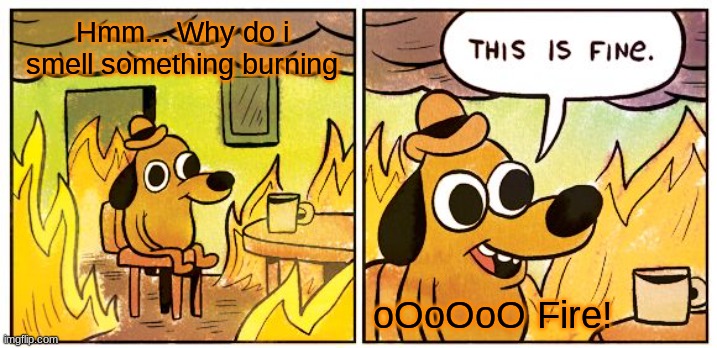I Smell Something Burning But Nothing Is

Decoding That Burning Smell: When Your HVAC System Sends Smoke Signals (But There's No Fire)
A burning smell emanating from your HVAC system can be alarming, to say the least. While the immediate thought might be fire, often the culprit is something far less catastrophic, but still demands attention. This comprehensive guide will walk you through the common causes of that mysterious burning odor, helping you troubleshoot the issue and determine whether it's a DIY fix or time to call a professional. We'll also touch on preventative measures to keep your HVAC system running smoothly and odor-free.
Common Causes of a Burning Smell from Your HVAC System
Several factors can contribute to a burning smell. Identifying the specific type of odor can provide valuable clues as to the underlying problem.
- Burning Dust: This is the most frequent cause, especially when you first turn on your furnace or heat pump after a period of inactivity. Dust accumulates on the heating elements or heat exchanger during the off-season. When the system kicks on, the dust burns off, creating a temporary, often acrid, smell.
- Electrical Issues: A burning plastic or electrical smell suggests a problem with the wiring, motor, or other electrical components. This is a serious concern and requires immediate attention.
- Overheated Motor: An overheating motor, often in the blower fan, can produce a burning smell. This may be accompanied by unusual noises or a decrease in airflow.
- Foreign Objects: Small animals, debris, or even plastic toys can find their way into the ductwork or near the blower, resulting in a burning smell when the system operates.
- Oil Leak (Furnaces): Oil furnaces can develop leaks that cause a distinct burning oil smell. This often requires professional repair.
- Failed Heating Element: In electric furnaces, a heating element can fail and overheat, creating a burning smell.
Diagnosing the Burning Smell: A Step-by-Step Approach
Before calling an HVAC technician, you can perform some basic troubleshooting steps. However, always prioritize safety. If you suspect an electrical issue, immediately turn off the power to the HVAC unit at the breaker box.
- Identify the Odor: Is it a dusty smell, a plastic smell, an electrical smell, or an oily smell? This will significantly narrow down the possible causes.
- Check the Air Filter: A dirty air filter restricts airflow, which can cause the system to overheat. Replace the filter if it's dirty. Consider upgrading to a higher-MERV filter for improved air quality, but be mindful of your system's capabilities (check your manual).
- Inspect the Unit: Visually inspect the HVAC unit for any obvious signs of damage, such as burnt wires, oil leaks, or debris. Use a flashlight to get a better view.
- Listen for Unusual Noises: Note any unusual noises coming from the unit, such as squealing, grinding, or rattling. These sounds can indicate a mechanical problem.
- Check the Vents: Smell the air coming from the vents. Does the burning smell seem stronger from certain vents than others? This could indicate a problem in the ductwork.
When to Call a Professional HVAC Technician
While some causes of a burning smell are relatively minor, others require the expertise of a qualified HVAC technician. Call a professional if:
- You suspect an electrical problem.
- The burning smell persists after replacing the air filter.
- You notice any signs of damage to the HVAC unit.
- You are uncomfortable working with electrical or mechanical components.
- The burning smell is accompanied by other symptoms, such as decreased airflow or unusual noises.
- You have an oil furnace and suspect an oil leak.
Preventative Maintenance: Keeping Your HVAC System Odor-Free
Regular maintenance is crucial for preventing problems that can lead to burning smells. Here are some essential preventative measures:
- Change the Air Filter Regularly: Check your air filter monthly and replace it as needed (typically every 1-3 months).
- Schedule Annual HVAC Inspections: Have a qualified HVAC technician inspect your system annually. They can identify potential problems early and perform necessary maintenance, such as cleaning the coils and lubricating the motor.
- Clean the Area Around the Unit: Keep the area around your HVAC unit clear of debris, such as leaves, grass clippings, and snow.
- Inspect Ductwork: Periodically inspect your ductwork for leaks or damage. Seal any leaks with duct tape or mastic sealant.
Understanding HVAC Efficiency Ratings: AFUE, SEER, and HSPF
When considering a new HVAC system, it's important to understand the various efficiency ratings:
- AFUE (Annual Fuel Utilization Efficiency): This rating applies to furnaces and measures how efficiently the furnace converts fuel (natural gas, propane, or oil) into heat. A higher AFUE rating indicates greater efficiency. Look for furnaces with AFUE ratings of 90% or higher for significant energy savings.
- SEER (Seasonal Energy Efficiency Ratio): This rating applies to air conditioners and heat pumps (in cooling mode) and measures how efficiently the system cools your home. A higher SEER rating indicates greater efficiency. Current standards require a minimum SEER rating of 14 in most regions. Look for systems with SEER ratings of 16 or higher for enhanced energy savings.
- HSPF (Heating Seasonal Performance Factor): This rating applies to heat pumps (in heating mode) and measures how efficiently the system heats your home. A higher HSPF rating indicates greater efficiency. The minimum HSPF rating is 8.2, but models with ratings of 9 or higher are considered more efficient.
Popular HVAC Brands and Models (and Their Ratings)
Several reputable HVAC brands offer efficient and reliable systems. Here are a few examples:
- Carrier: Known for its high-efficiency systems and innovative features. Carrier offers furnaces with AFUE ratings up to 98.5%, air conditioners with SEER ratings up to 26, and heat pumps with HSPF ratings up to 13.
- Trane: Another leading brand with a reputation for durability and performance. Trane offers furnaces with AFUE ratings up to 97%, air conditioners with SEER ratings up to 22, and heat pumps with HSPF ratings up to 10.
- Lennox: Offers a wide range of HVAC systems, including ultra-high-efficiency models. Lennox offers furnaces with AFUE ratings up to 99%, air conditioners with SEER ratings up to 28, and heat pumps with HSPF ratings up to 10.
- Goodman: A more budget-friendly option that still offers decent efficiency and reliability. Goodman offers furnaces with AFUE ratings up to 98%, air conditioners with SEER ratings up to 19, and heat pumps with HSPF ratings up to 10.
Note: Actual SEER, AFUE, and HSPF ratings vary depending on the specific model and installation. Always consult with a qualified HVAC contractor to determine the best system for your home.
Understanding HVAC Warranties
HVAC warranties provide peace of mind and protect you from unexpected repair costs. Be sure to carefully review the warranty terms before purchasing a new system.
- Compressor Warranty: This covers the compressor, which is the most expensive component of an air conditioner or heat pump. Compressor warranties typically range from 5 to 10 years, with some manufacturers offering lifetime warranties.
- Parts Warranty: This covers other components of the HVAC system, such as the blower motor, heat exchanger, and control board. Parts warranties typically range from 5 to 10 years.
- Labor Warranty: This covers the cost of labor for repairs. Labor warranties are typically shorter than parts warranties, ranging from 1 to 2 years. Some manufacturers offer extended labor warranties for an additional cost.
Important: To maintain your warranty, you typically need to register your HVAC system with the manufacturer within a specified timeframe and have it professionally installed and maintained.
The Bottom Line: Staying Vigilant and Proactive
A burning smell from your HVAC system should never be ignored. By understanding the potential causes and taking proactive steps to maintain your system, you can prevent problems and ensure a comfortable and safe home environment. If you're unsure about the cause of the burning smell or uncomfortable performing repairs yourself, don't hesitate to call a qualified HVAC technician. Investing in regular maintenance and choosing an energy-efficient HVAC system will not only improve your comfort but also save you money on energy bills in the long run.
Remember to always prioritize safety when dealing with electrical or mechanical equipment. When in doubt, consult with a professional. Staying informed and proactive is the best way to keep your HVAC system running smoothly and prevent potentially dangerous situations. Consider researching models with variable-speed blowers for improved efficiency and comfort.










